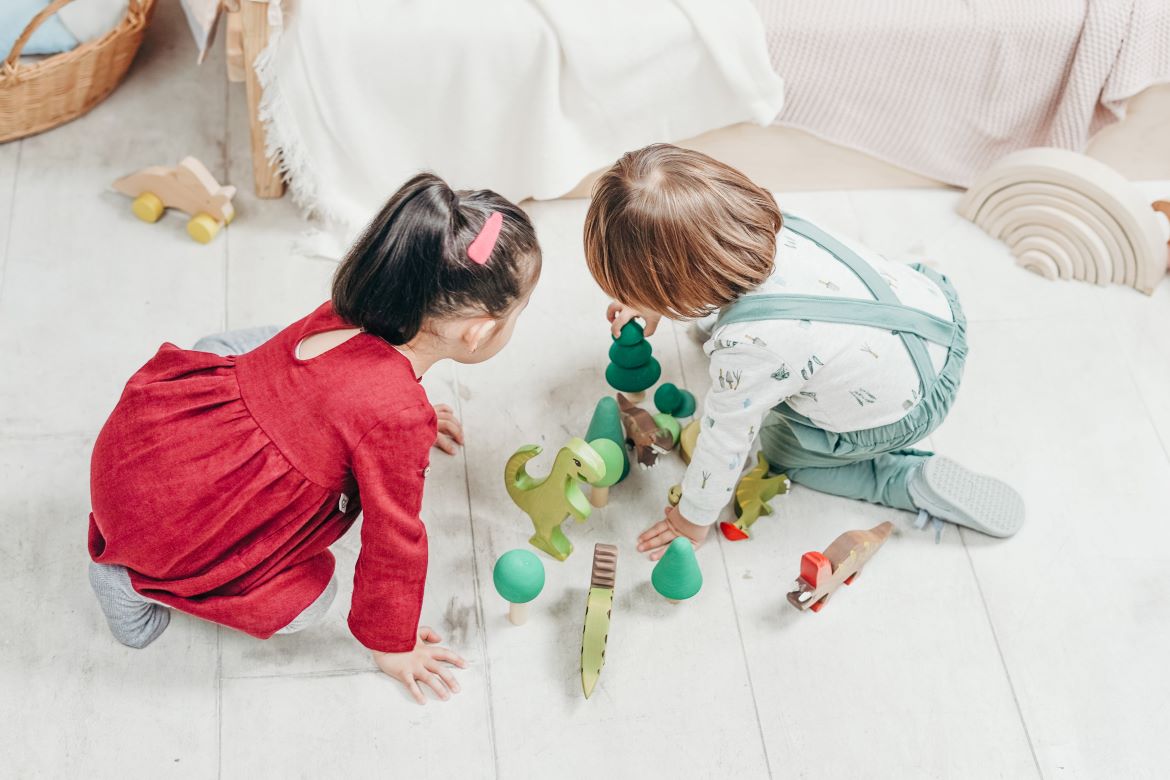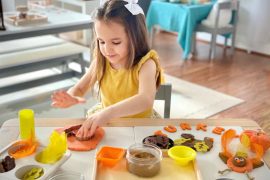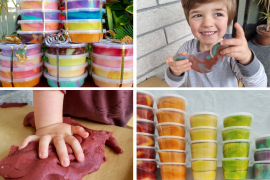By Elizabeth Pantley
Have you joined a playgroup with the idea that your toddler or preschooler would have fun playing with other children, but find that things don’t go as planned? Do the little ones refuse to share? Do they bicker and cry? Do you spend your time as a referee and peacemaker? Let’s talk about it!
Developing friendship skills takes time and experience. The only way kids learn social skills is by practice, and it takes more than a few events for them to learn how to interact with other kids.
Even though there are plenty of bumps along the way, it’s worth scheduling play time with other children, because eventually they’ll find some of their most happy times playing with friends.
Once you’ve found a group or play area for social activity, start out slow, if possible. Keep an eye on your child to be sure they are comfortable. Even if they are shy or slow to warm up, be patient. There are many things you can do to make playgroup time a happy time.
HAVE REALISTIC EXPECTATIONS
Young and inexperienced children will need guidance during playtime. Even with supervision, children will get into tussles with each other – and if they didn’t, they’d never learn how to handle the disagreements that are a normal part of life! Look at these moments as golden teaching opportunities.
WATCH FOR SIGNS OF HUNGER OR TIREDNESS
Children lose patience and good humour when they are tired or hungry. If hunger is the issue, supply a wholesome snack to the group. If tiredness hits, either leave for home or bring out the books, a quiet game, or a favourite movie.
CHOOSE THE RIGHT ACTIVITIES
Sharing toys can be a challenge, so avoid having too few toys to pass among the group. Make sure there are plenty of choices for all the kiddos.
Good choices for group play are things with many parts that are easy to share: like building blocks, art projects, and imaginative play supplies like dress-up clothes and play kitchen supplies.
Having several different activities to choose from can help, particularly with a larger group of children.
COACH THEM THROUGH PROBLEMS
Children can get frustrated or angry with a little friend, but they don’t have the self-control or wisdom to handle their frustrations in the proper way. You’ll need to teach the kids how to negotiate and compromise when they have a problem. Ask each one in turn to explain what happened. Then guide them through problem solving.











